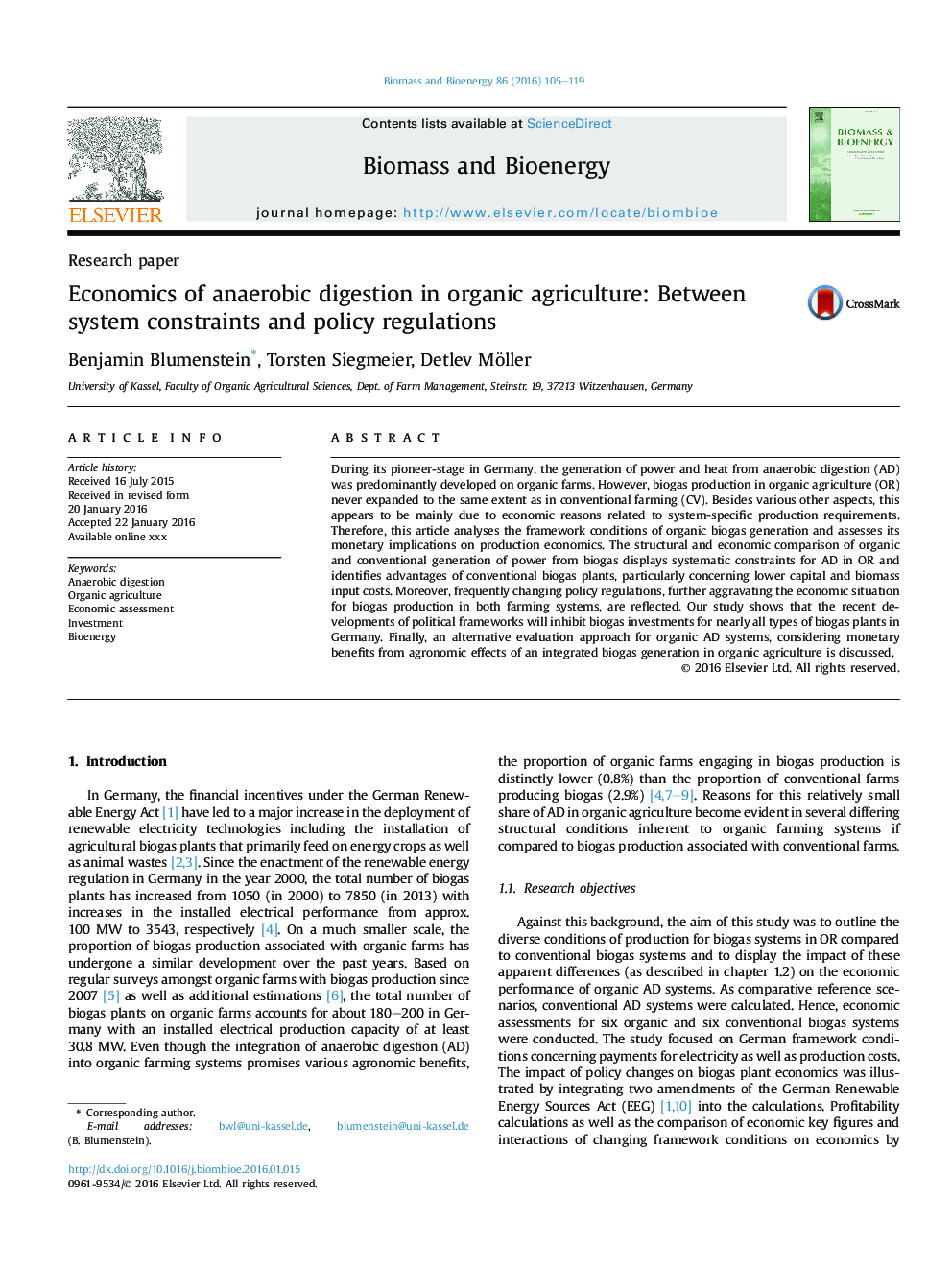| Article ID | Journal | Published Year | Pages | File Type |
|---|---|---|---|---|
| 7063444 | Biomass and Bioenergy | 2016 | 15 Pages |
Abstract
During its pioneer-stage in Germany, the generation of power and heat from anaerobic digestion (AD) was predominantly developed on organic farms. However, biogas production in organic agriculture (OR) never expanded to the same extent as in conventional farming (CV). Besides various other aspects, this appears to be mainly due to economic reasons related to system-specific production requirements. Therefore, this article analyses the framework conditions of organic biogas generation and assesses its monetary implications on production economics. The structural and economic comparison of organic and conventional generation of power from biogas displays systematic constraints for AD in OR and identifies advantages of conventional biogas plants, particularly concerning lower capital and biomass input costs. Moreover, frequently changing policy regulations, further aggravating the economic situation for biogas production in both farming systems, are reflected. Our study shows that the recent developments of political frameworks will inhibit biogas investments for nearly all types of biogas plants in Germany. Finally, an alternative evaluation approach for organic AD systems, considering monetary benefits from agronomic effects of an integrated biogas generation in organic agriculture is discussed.
Related Topics
Physical Sciences and Engineering
Chemical Engineering
Process Chemistry and Technology
Authors
Benjamin Blumenstein, Torsten Siegmeier, Detlev Möller,
